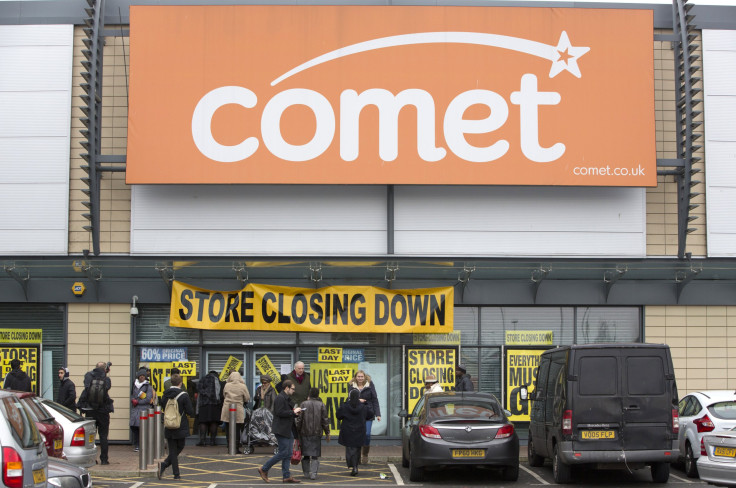Ghost Towns: Britain’s Increased Dependence On Online Purchases Wiping Out Retail Stores

“This town, is coming like a ghost town.” – The Specials, 1981.
Britain’s retail industry is facing a drastic consolidation – within five years time, one-fifth of all stores may vanish, resulting in hundreds of thousands of job losses, amid a greater dependency on online retailing.
So warned The Centre for Retail Research (CRR), a Nottingham-based research firm, in a gloomy report entitled “Retail Futures 2018” that was issued on Monday. Among other things, the report projected that the number of store locations in the U.K. will plunge by 22 percent by 2018 -- from nearly 282,000 today to 220,000, resulting in 316,000 job losses.
Pharmacies and health and beauty shops would likely be the first to go, followed by music, book, cards, stationery and gift stores, the report said. Britain’s town centers – also known as High Streets -- will lose almost 28,000 stores over the next five years as an increasing number of consumers avoid traveling into town to make their purchases.As a result, 164 large or medium-sized companies will face bankruptcy. Online retail will account for more than one-fifth (21.5 percent) of all retail business in Britain by the end of the decade – the highest such proportion in the world -- up from 12.7 percent in 2012.
Indeed, the report states that the cost of running retail outlets is becoming increasingly untenable. Since 2006, consumer spending in the U.K. has increased by 12 percent, while retail operating costs have surged by 20 percent.
As an example, CRR indicated that opening a small retail outlet on a High Street in the English Midlands would cost about £10,000 per month. In contrast, operating a warehouse of the same size (from where consumers can order the same products) on the outskirts of a city would cost between £650 and £1,800 per month.
CRR indicated that with so much business being done online, an average retailer only needs to operate about 70 High Street stores to maintain a national presence – versus 250 in the mid-2000s. The British Retail Consortium noted that in the past year alone, 16 major retailers have already gone into bankruptcy, accompanied by nearly 15,000 job losses. The CRR described the disappearance of retail outlets as a “crisis.”
“Retailing and retailers will either make clear strategic decisions that permit online retail to coexist with other retail channels in a multichannel world allowing bricks-and-mortar retailers to transform themselves, or, by avoiding making these decisions, multiple retailers will disappear or be so mortally wounded that a large minority of business categories become dominated purely online retailers,” the group stated. “Radical changes need to be made by retailers, town centers and the government to preserve what is best in retailing.”
However, one commenter suggests that the advancements in online technology could actually serve to save ‘High Street’ stores. “Today’s report from the CRR shows that Britain’s high-streets are failing to keep up with the demands of tech-savvy shoppers who are abandoning the high street in favor for online,” said Alan Gabbay the founder of Udozi, a London-based company that provides shopping app for online shoppers.
Gabbay added, however, that his company’s research shows that one-third of British consumers actually want to see more stores on the country’s high streets.
So where are bricks-and-mortar stores going wrong? Technology, according to Gabbay. “Our research shows that 10 percent of Brits say that a lack of mobile or online presence is putting them off going in store -- meaning that retailers need to adapt and embrace new technology if they are to survive,” he said.
Indeed, mobile is playing an increasingly important role in driving customers back into stores. More than one-quarter (26 percent) of Smartphone users; and more than one-third (35 percent) of tablet owners use their devices to browse for products online before going into store.
“What’s more, 70 percent of us would like to be able to reserve items on our phones to purchase on the high-street, demonstrating the potential for mobile to bridge the gap between retailers’ online platforms and their traditional high-street offering,” Gabbay added.
“For the British high-street to survive, retailers must be quicker to adapt to new trends, evolve and embrace new technology trends such as mobile. Only then will they retain their competitive edge and continue to survive.”
© Copyright IBTimes 2024. All rights reserved.




















